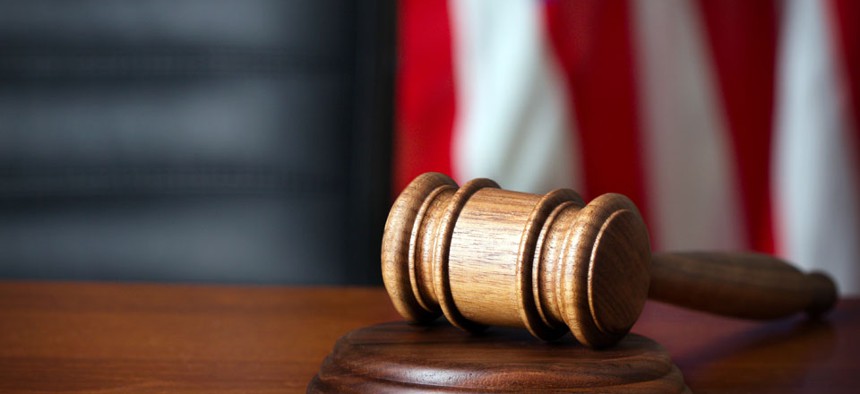Justice Department Admits It Misled Court About FBI’s Secret Surveillance Program

Alex Staroseltsev/Shutterstock.com
“We regret this inadvertent inaccuracy and apologize for any confusion that may have been caused.”
The Justice Department acknowledged that it misled a federal Appeals Court during oral arguments last month in a case reviewing whether the government should be able to secretly conduct electronic surveillance of Americans without a warrant.
In a newly unsealed letter, a Justice Department lawyer told the U.S. Court of Appeals for the 9th Circuit that it spoke erroneously when describing the disclosure restrictions placed upon the FBI's use of so-called national security letters. NSLs, as they are often referred, can compel companies to hand over communications data or financial records of certain users to authorities conducting a national security investigation.
Companies are often given an NSL with an accompanying gag order that prevents them from publicly revealing any details regarding the NSL, or disclosing that it even exists. But during arguments, government lawyers indicated to the contrary that a company could reveal that it had received a specific NSL and "discuss the quality" of it.
"That suggestion was mistaken," wrote Justice Department lawyer Jonathan Levy. "We regret this inadvertent inaccuracy and apologize for any confusion that may have been caused."
Levy additionally noted the letter, addressed to the Appeals Court, was an attempt to "correct that error."
The Electronic Frontier Foundation, a digital-freedom group which represented an unidentified telecommunications company in the case, said the government's mea culpa "significantly undermines its case."
"During oral arguments, we were surprised to hear the government retreat from its position that NSLs gag recipients from talking about the 'very fact of having received' an NSL," said Cindy Cohn, EFF's legal director, in a statement. "But now we learn that the government's position remains unchanged. Because the government's argument to the Ninth Circuit depended in part on the assertion that the NSL gag order does nothing to stifle public debate, this later retraction significantly undermines its case."
Cohn called the mistake a "very strategic error" by the government, noting that the correction was given only after her organization asked for specific clarification.
"They didn't draw the attention to the Court, I did," Cohn said. "You can call it an error ... but we've seen the government willing to shave the truth and mislead Congress" on surveillance matters.
In the wake of the Snowden leaks, the government relaxed some restraints on what tech companies can disclose about the government's surveillance requests. A deal announced earlier this year allows reporting on the quantity of NSLs received over the course of six months, but only within bands of 1,000. (A company that received zero NSLs, for example, could only disclose it had received between zero and 999.)
National security letters have been in use since the late 1970s, although they have grown in importance and frequency in recent years. Hundreds of thousands of NSLs have been issued since the post-9/11 USA Patriot Act expanded their authority, and an overwhelming majority have been accompanied by gag orders. The Justice Department argues the letters are necessary to protect national security and thwart terrorist attacks.
An unidentified telecommunications company, represented by EFF, challenged the legal authority of an NSL it received in 2011, as well as the gag order that prevented disclosure.
A federal judge last year ruled that the FBI's use of NSLs violated the First Amendment, a decision privacy advocates cheered. The judge additionally found the government's limited judicial oversight over NSLs was lacking, ordered the cessation of their use, and said the FBI must halt enforcement of its gag orders.
Enforcement of the ruling was stayed due to the "significant constitutional and national security issues at stake," however, and the government appealed the decision to the 9th Circuit.
The case is one of several makings its way through the courts that challenges the legal authority of government surveillance. A decision is expected in the coming months, and many observers say it could ultimately land before the Supreme Court.
(Image via Alex Staroseltsev/Shutterstock.com)






